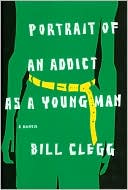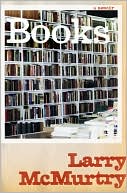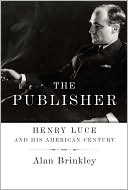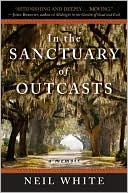New York Days
In the critically acclaimed New York Days, Willie Morris recalls his triumphant, exciting, and ultimately devastating years as the youngest ever editor-in-chief of Harper's, America's oldest magazine, when he was at the center of the nation's stunning cosmos of writing, publishing, politics, and the arts. New York Days captures the spirit of the 60's: the dazzling parties, the fervent intellectualism, and the sense of slowly decaying idealism as the country plunged deeper into a tragic war...
Search in google:
In the critically acclaimed New York Days, Willie Morris recalls his triumphant, exciting, and ultimately devastating years as the youngest ever editor-in-chief of Harper's, America's oldest magazine, when he was at the center of the nation's stunning cosmos of writing, publishing, politics, and the arts. New York Days captures the spirit of the 60's: the dazzling parties, the fervent intellectualism, and the sense of slowly decaying idealism as the country plunged deeper into a tragic war and intensifying social chaos. In the midst of this scene is Willie Morris, exalted, exhilarated, and eventually almost consumed by his brilliant, electric, enervating New York days. Publishers Weekly Nearly 25 years after his bestselling memoir North Toward Home, the Mississippi-born writer and editor here revisits some of the same material--Southern boy in the big city--but with a closer focus on his controversial editorship of Harper's magazine. Morris writes, sometimes eloquently, sometimes with a little too much rhetorical rodomontade, about the magic of New York City and the distinguished writers with whom he worked during those influential years (1967-1971) when the magazine was the ``hot book'': Norman Mailer, David Halberstam, Marshall Frady, Larry L. King and Bill Moyers, among many others. Morris recaptures splendidly the heady sense that he and his magazine were helping to shape the culture of the times by focusing opposition to the Vietnam war and by taking the complicated beat of the contemporary American pulse. Eventually the magazine fell victim to the bottom-line mentality of its Minnesota owners, the Cowles family, and Morris quit. There are fine anecdotes galore (the early days of Elaine's celebrated restaurant are delightfully chronicled) and striking quotes; the whole is drenched in nostalgia and regret. Morris, now having been back home in Mississippi for many years, leaves readers with the feeling that he lived during the kind of time, personal and professional, that can never come again; and in a period when '60s attitudes are so readily scorned, it is salutary to be reminded of the sense of excitement and possibility those times aroused in so many writers. (Sept.)
\ Publishers Weekly - Publisher's Weekly\ Nearly 25 years after his bestselling memoir North Toward Home, the Mississippi-born writer and editor here revisits some of the same material--Southern boy in the big city--but with a closer focus on his controversial editorship of Harper's magazine. Morris writes, sometimes eloquently, sometimes with a little too much rhetorical rodomontade, about the magic of New York City and the distinguished writers with whom he worked during those influential years (1967-1971) when the magazine was the ``hot book'': Norman Mailer, David Halberstam, Marshall Frady, Larry L. King and Bill Moyers, among many others. Morris recaptures splendidly the heady sense that he and his magazine were helping to shape the culture of the times by focusing opposition to the Vietnam war and by taking the complicated beat of the contemporary American pulse. Eventually the magazine fell victim to the bottom-line mentality of its Minnesota owners, the Cowles family, and Morris quit. There are fine anecdotes galore (the early days of Elaine's celebrated restaurant are delightfully chronicled) and striking quotes; the whole is drenched in nostalgia and regret. Morris, now having been back home in Mississippi for many years, leaves readers with the feeling that he lived during the kind of time, personal and professional, that can never come again; and in a period when '60s attitudes are so readily scorned, it is salutary to be reminded of the sense of excitement and possibility those times aroused in so many writers. (Sept.)\ \








